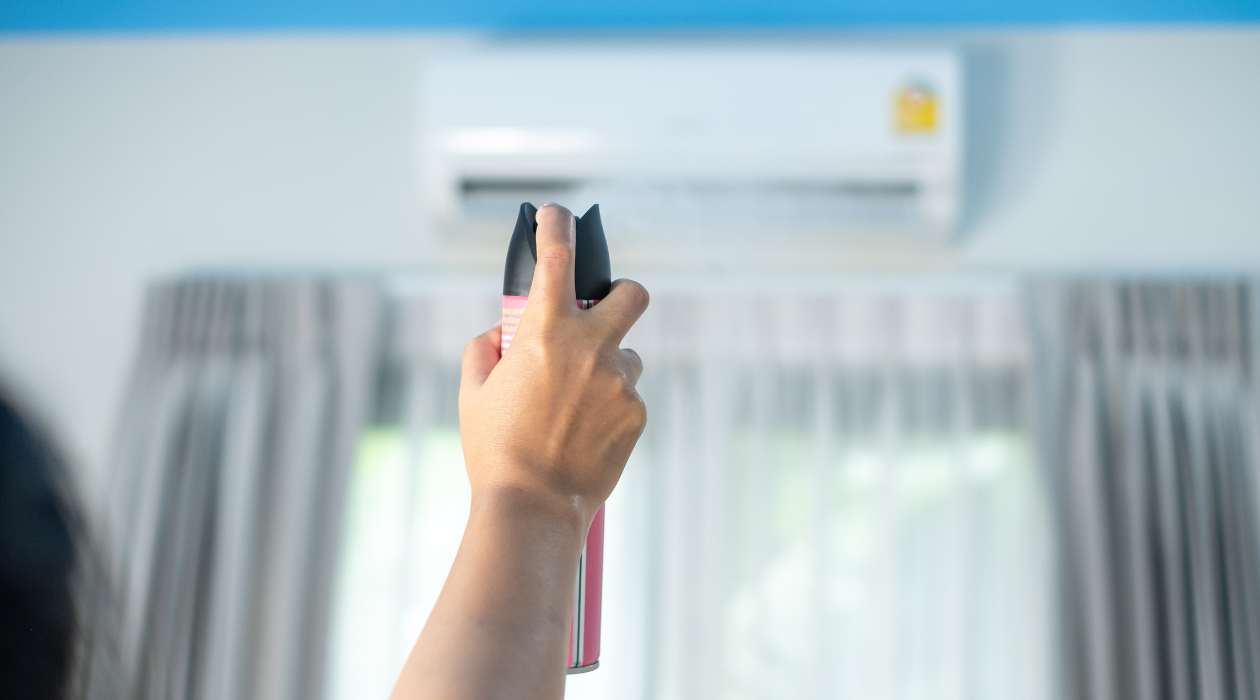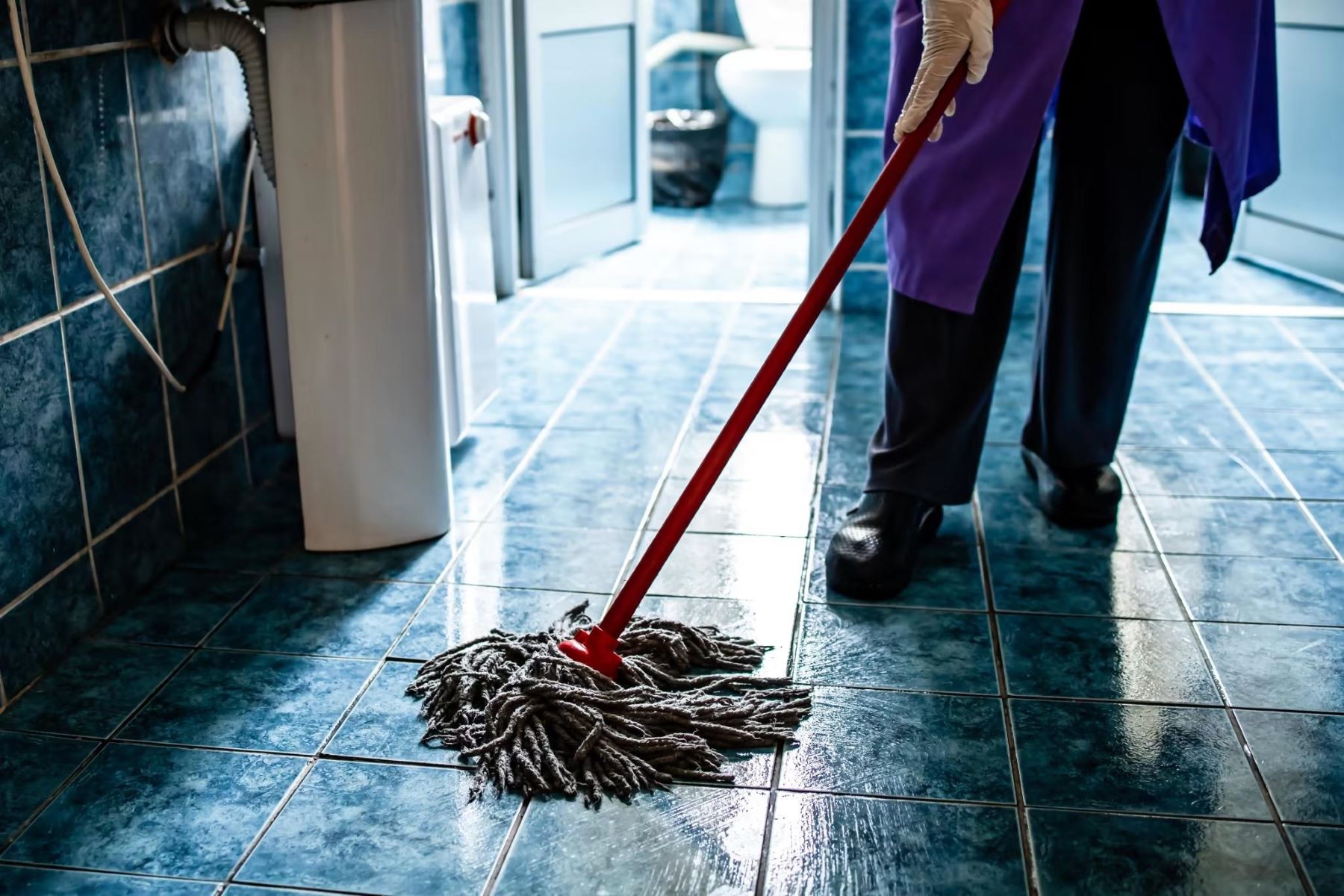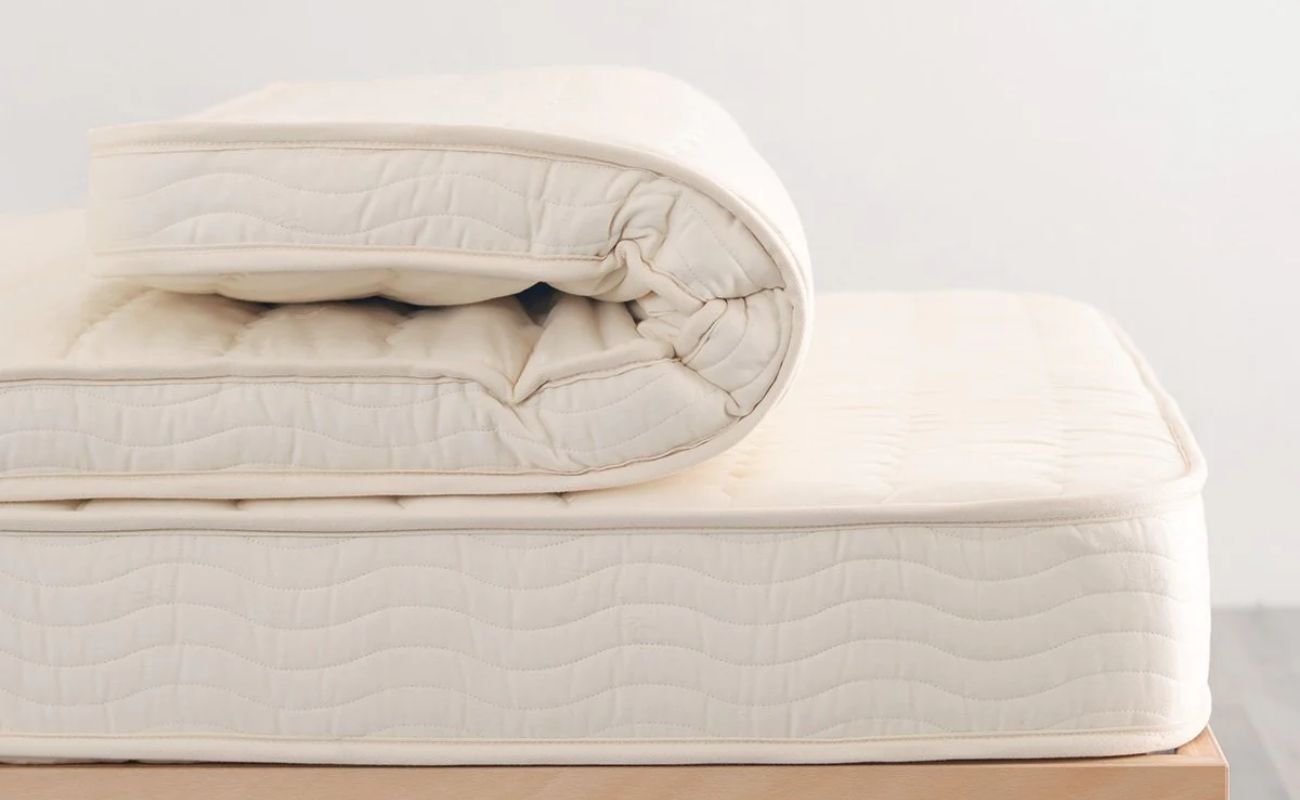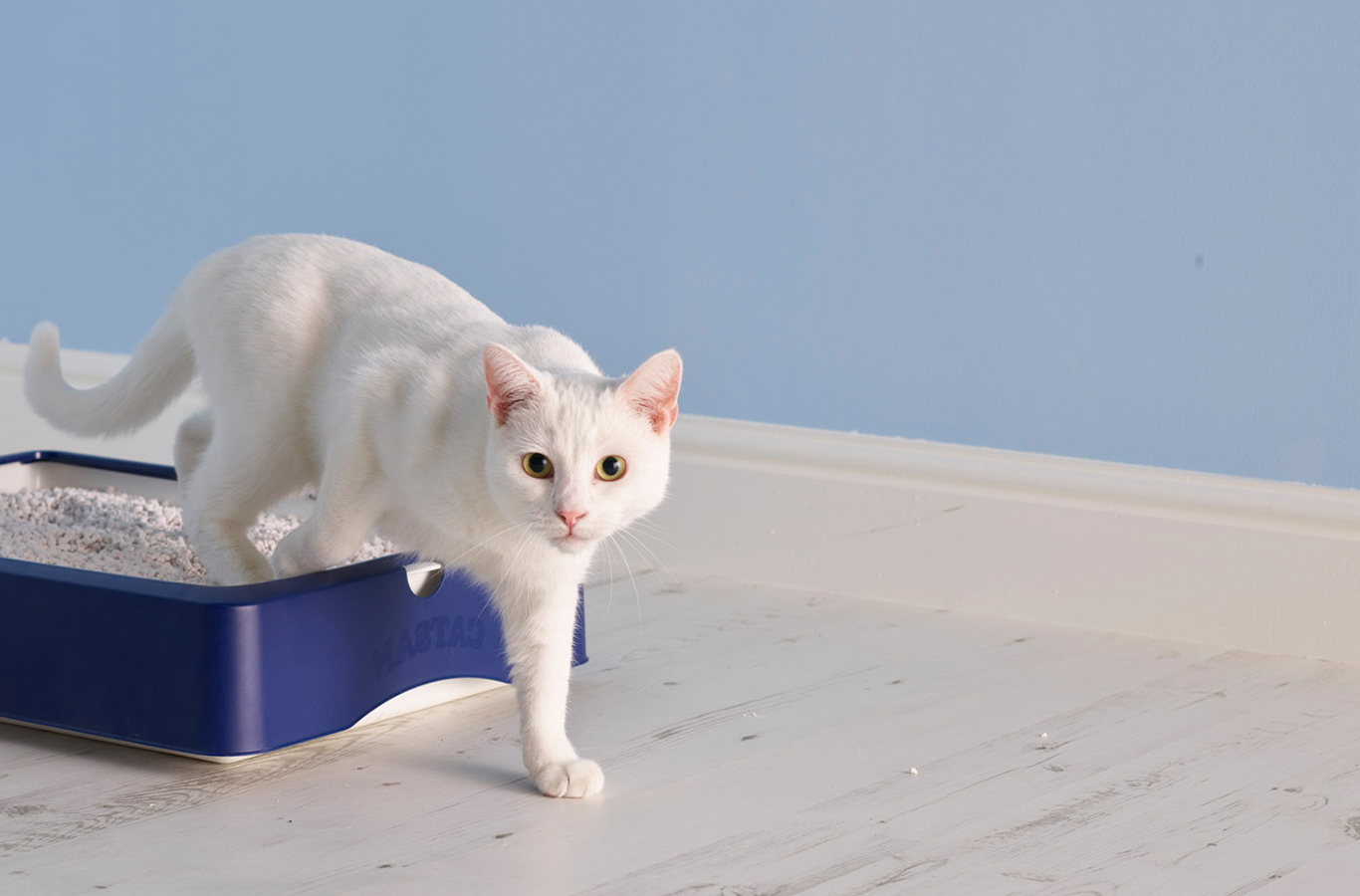Home>Home Maintenance>How To Get Rid Of A Musty Smell From An Air Conditioner


Home Maintenance
How To Get Rid Of A Musty Smell From An Air Conditioner
Modified: August 30, 2024
Learn how to eliminate the musty odor from your air conditioner with these effective home maintenance tips. Say goodbye to unpleasant smells and enjoy fresh, clean air in your home.
(Many of the links in this article redirect to a specific reviewed product. Your purchase of these products through affiliate links helps to generate commission for Storables.com, at no extra cost. Learn more)
Introduction
Having a musty smell coming from your air conditioner can be quite unpleasant. Not only does it affect the overall indoor air quality, but it can also create an uncomfortable environment in your home. The musty smell is often caused by mold and mildew growth within the air conditioner, which can have negative effects on your health if left unaddressed. Fortunately, there are steps you can take to get rid of the musty smell and ensure that your air conditioner remains fresh and clean.
In this article, we will explore the causes of a musty smell in air conditioners and provide you with a comprehensive guide on how to eliminate it. By following these steps, you can enjoy a fresh and odor-free cooling experience in your home.
Key Takeaways:
- Regular maintenance and cleaning of your air conditioner, including replacing air filters, cleaning indoor and outdoor units, and clearing drain lines, can eliminate musty smells and ensure fresh, odor-free air in your home.
- Using dehumidifiers, ensuring proper ventilation, and removing excess moisture from your home can prevent the growth of mold and mildew, helping to eliminate musty smells from your air conditioner and maintain a healthy indoor environment.
Understanding the Musty Smell in Air Conditioners
Before we dive into the steps to get rid of a musty smell from an air conditioner, it’s important to first understand why this unpleasant odor occurs. The musty smell is typically caused by mold and mildew growth within the air conditioning system.
Air conditioners create a cool indoor environment by removing heat and moisture from the air. However, if there is excess moisture present in the system or inadequate ventilation, mold and mildew can thrive. These fungi release volatile organic compounds (VOCs) that give off the characteristic musty smell.
It’s crucial to address the musty smell promptly, as prolonged exposure to mold and mildew can have detrimental effects on your health. Mold spores can trigger allergic reactions, respiratory issues, and even contribute to the development of asthma and other respiratory conditions.
Now that we understand the underlying cause of the musty smell, let’s explore the steps you can take to eliminate it and maintain a fresh and clean air conditioner.
Causes of Musty Smell in Air Conditioners
There are several factors that can contribute to the development of a musty smell in air conditioners. By understanding these causes, you can effectively address and prevent the issue. Here are the common culprits:
- Mold and Mildew Growth: Excessive moisture and inadequate ventilation create the perfect breeding ground for mold and mildew. These fungi thrive in dark, damp environments, such as the air conditioner’s evaporator coil and drip pan.
- Clogged or Dirty Air Filters: When the air filters become clogged with dust, dirt, and debris, they can not only affect the performance of the air conditioner but can also lead to the accumulation of moisture in the system. This moisture provides an ideal environment for mold and mildew growth and contributes to the musty smell.
- Dampness in the Air Conditioner: If the air conditioner is not properly maintained or if there are leaks in the system, dampness can occur. This moisture can lead to the growth of mold and mildew, resulting in the musty odor.
- Contaminated Drain Pan and Drain Line: The drain pan and drain line in the air conditioner can become clogged with dirt, debris, and algae. This blockage prevents proper drainage of the condensation, leading to moisture buildup and the growth of mold and mildew.
- High Humidity Levels: Areas with high humidity levels provide an ideal environment for mold and mildew growth. If your air conditioner is unable to effectively remove moisture from the air or if your home lacks proper ventilation, it can contribute to the development of a musty smell.
By identifying these causes, you can take appropriate measures to eliminate the musty smell from your air conditioner and prevent it from recurring in the future.
Steps to Get Rid of a Musty Smell from an Air Conditioner
Now that we have explored the causes of a musty smell in air conditioners, let’s dive into the steps you can take to eliminate it. By following these steps, you can ensure that your air conditioner remains fresh and odor-free:
- Turn off the Air Conditioner: Before beginning any maintenance or cleaning tasks, make sure to turn off the air conditioner and unplug it from the power source. This ensures your safety throughout the process.
- Clean or Replace the Air Filter: Start by cleaning or replacing the air filter. A dirty or clogged air filter can contribute to the musty smell and reduce the efficiency of your air conditioner. Refer to the manufacturer’s instructions for proper cleaning or replacement.
- Clean the Indoor Unit: Carefully remove the front cover of the indoor unit and clean the evaporator coils, fan blades, and any accessible areas. Use a soft brush or vacuum cleaner to remove dust, dirt, and debris. Wipe down the surfaces with a mixture of mild detergent and water. Take care not to get the electrical components wet.
- Clean the Outdoor Unit: Inspect the outdoor unit and remove any leaves, debris, or vegetation that may have accumulated around it. Use a hose to gently wash away dirt and grime. Ensure that the unit is completely dry before reassembling it.
- Clean the Drain Pan and Drain Line: Locate the drain pan and drain line in your air conditioner. Remove any standing water from the drain pan and clean it thoroughly using a mixture of vinegar and water or a mild detergent. Use a pipe cleaner or a small brush to clear any blockages in the drain line.
- Use an Air Conditioner Cleaner: To eliminate any remaining mold or mildew and freshen up your air conditioner, consider using an air conditioner cleaning solution. Follow the instructions on the product label for safe and effective use.
- Remove Moisture from the Surrounding Area: Lower the humidity levels in your home by using dehumidifiers or moisture-absorbing products. This helps prevent the growth of mold and mildew in your air conditioner and reduces the chance of a musty smell.
- Ensure Proper Ventilation: Ensure that your home has adequate ventilation, especially in areas where moisture tends to accumulate, such as the bathroom and kitchen. Use exhaust fans or open windows to promote air circulation and reduce humidity.
- Use a Dehumidifier: Consider using a dehumidifier in rooms with high humidity levels to remove excess moisture from the air. This helps prevent mold and mildew growth not only in your air conditioner but also in other areas of your home.
- Schedule Regular Maintenance: To prevent the recurrence of a musty smell, schedule regular maintenance for your air conditioner. This includes cleaning or replacing the air filters, checking for any leaks or blockages, and ensuring proper drainage.
By following these steps and incorporating them into your regular air conditioner maintenance routine, you can effectively get rid of the musty smell and enjoy clean and fresh air throughout your home.
Turn off the Air Conditioner
The first step in getting rid of a musty smell from your air conditioner is to turn it off. This is important for your safety and to prevent any damage to the unit during the cleaning process. Follow these steps to turn off your air conditioner:
- Locate the power switch or circuit breaker that controls your air conditioner.
- Switch off the power to the air conditioner by flipping the switch or turning off the circuit breaker.
- Once the power is off, unplug the air conditioner from the electrical outlet.
By turning off the air conditioner, you ensure that there is no electricity flowing through the unit while you perform the necessary cleaning tasks. This reduces the risk of electrical shocks and other accidents.
It’s important to note that you should never attempt to clean or perform maintenance on your air conditioner while it is still running. This can not only pose a safety hazard but can also damage the unit and its components.
Once you have turned off the air conditioner and unplugged it, you can proceed with the next steps to eliminate the musty smell and improve the overall air quality in your home.
Read more: How To Get Rid Of Musty Attic Smell
Clean or Replace the Air Filter
The air filter in your air conditioner plays a crucial role in maintaining clean and fresh air quality. Over time, the air filter can become clogged with dust, dirt, and debris, leading to reduced airflow and poor air quality. Cleaning or replacing the air filter is an essential step in getting rid of a musty smell from your air conditioner. Here’s what you need to do:
- Refer to the manufacturer’s instructions to locate the air filter in your air conditioner. It is usually found behind a panel on the indoor unit.
- If the filter is washable, remove it carefully. Rinse the filter under running water or soak it in a mixture of warm water and mild detergent.
- Gently scrub the filter to remove any dirt or debris. Avoid using harsh chemicals or scrubbing too vigorously, as this can damage the filter.
- Rinse the filter thoroughly to remove any soap residue, and allow it to air dry completely before reinstalling it. Alternatively, you can pat it dry with a soft cloth.
- If the filter is not washable or if it is damaged beyond repair, it is recommended to replace it with a new one. Check the specifications of your air conditioner to ensure you purchase the correct size and type of filter.
- Insert the clean or new air filter back into the air conditioner, following the instructions provided by the manufacturer. Make sure it is properly seated and secure in place.
Regularly cleaning or replacing the air filter is essential for the proper functioning of your air conditioner and for maintaining good indoor air quality. It not only helps in eliminating the musty smell but also improves the overall efficiency of the unit.
Remember to clean or replace the air filter at least once every three months, or more frequently if you have pets, live in a dusty environment, or have allergies. This will ensure that your air conditioner operates optimally and provides you with clean, fresh, and odor-free air.
Clean the Indoor Unit
Cleaning the indoor unit of your air conditioner is an important step in getting rid of a musty smell and maintaining a fresh and odor-free environment in your home. The indoor unit consists of the evaporator coils, fan blades, and other accessible areas that can accumulate dust, dirt, and potentially harbor mold and mildew. Here’s how you can clean the indoor unit:
- Before you begin, ensure that the air conditioner is turned off and unplugged to prevent any accidents or injuries.
- Remove the front cover or panel of the indoor unit. This can usually be done by unscrewing or unclipping it from the unit.
- Using a soft brush or vacuum cleaner with a brush attachment, gently remove dust, dirt, and debris from the evaporator coils, fan blades, and other accessible areas. Be careful not to apply excessive pressure, as this can damage the delicate components.
- If there is stubborn dirt or grime, you can create a mixture of mild detergent and water. Dampen a soft cloth or sponge with the solution and carefully wipe down the surfaces. Avoid getting the electrical components wet.
- Pay special attention to the evaporator coils, as this is where mold and mildew can thrive. Use a soft brush or a coil cleaning brush to remove any buildup on the coils. Ensure that you clean all sides of the coils thoroughly.
- Once you have finished cleaning, allow the indoor unit to dry completely before reassembling the front cover or panel.
Cleaning the indoor unit not only helps in eliminating the musty smell but also improves the overall efficiency of your air conditioner. It ensures that the air circulated in your home is clean and free of any contaminants that may contribute to indoor air pollution and odors.
It is recommended to clean the indoor unit of your air conditioner at least once a year, or more frequently if you notice a buildup of dirt or if the unit is in a dusty environment. Regular maintenance and cleaning will help prolong the lifespan of your air conditioner and ensure that it operates at peak performance.
Clean the Outdoor Unit
Cleaning the outdoor unit of your air conditioner is an important step in maintaining its efficiency and preventing the development of a musty smell. The outdoor unit is exposed to the elements and can accumulate dirt, debris, and vegetation, hindering its performance. Follow these steps to clean the outdoor unit:
- Ensure that the air conditioner is turned off and unplugged before you begin cleaning the outdoor unit. Safety should always be a priority.
- Remove any leaves, dust, or debris that may have accumulated around the outdoor unit. Use a broom, brush, or gloved hands to gently clear the area.
- Inspect the fins of the outdoor unit. If you notice any visible dirt or grime, use a garden hose with a spray nozzle attachment to wash away the dirt. Ensure that you spray the water in a downward direction to avoid damaging the fins.
- If there are stubborn dirt or debris stuck in the fins, you can use a soft brush or a fin cleaning tool to carefully remove them. Do this gently to avoid bending or damaging the fins.
- After cleaning the fins, allow the outdoor unit to dry completely before reassembling any covers or panels that were removed.
- Trim any nearby vegetation, shrubs, or branches that may be obstructing the airflow to the outdoor unit. Maintaining a clear space around the unit allows for proper ventilation and optimal performance.
Cleaning the outdoor unit is essential for the efficient operation of your air conditioner. A clean and unobstructed unit allows for proper airflow and cooling, preventing the accumulation of moisture that can lead to mold and mildew growth and the development of a musty smell.
It is recommended to clean the outdoor unit at least once a year, or more frequently if you live in an area with a high concentration of dirt, dust, or vegetation. Regular cleaning and maintenance will help extend the lifespan of your air conditioner and ensure that it operates effectively and efficiently.
To get rid of a musty smell from an air conditioner, try cleaning or replacing the air filter, cleaning the evaporator coil, and using a mold and mildew cleaner in the drip pan and drain line.
Clean the Drain Pan and Drain Line
Cleaning the drain pan and drain line of your air conditioner is crucial to prevent the buildup of stagnant water and the growth of mold and mildew, which can contribute to a musty smell. The drain pan collects condensation from the cooling process, and the drain line carries the water away from the unit. Here’s how to clean them:
- Start by locating the drain pan, which is typically located underneath the indoor unit. If you’re unsure, consult the user manual or contact a professional.
- Carefully remove any standing water from the drain pan using a sponge or towel. Dispose of the water in a sink or bucket.
- Prepare a mixture of equal parts vinegar and water or a mild detergent diluted with water.
- Using a soft brush or cloth, scrub the inside of the drain pan with the cleaning solution to remove any residue, dirt, or mold. Pay attention to the corners and edges where buildup may occur.
- Rinse the drain pan thoroughly with clean water to remove any remaining cleaning solution.
- Next, locate the drain line, which is a PVC pipe connected to the air conditioner. Check for any visible blockages or buildup.
- Using a pipe cleaner or a small brush, carefully clean the drain line to remove any clogs or debris. Start from the access point near the indoor unit and work your way towards the outdoor end.
- After cleaning the drain line, flush it with clean water to ensure it’s clear and free of any blockages.
Cleaning the drain pan and drain line is essential to prevent water from backing up and contributing to mold and mildew growth. By keeping these components clean and clear, you can ensure proper drainage and minimize the risk of a musty smell in your air conditioner.
It’s recommended to clean the drain pan and drain line at least once a year, or more frequently if you notice water accumulation or suspect a blockage. Regular maintenance of these components will help maintain the efficiency of your air conditioner and prevent any potential issues.
Read more: How To Get Rid Of Musty Smell In Closet
Use an Air Conditioner Cleaner
In addition to regular cleaning and maintenance, using an air conditioner cleaner can help eliminate persistent musty smells and ensure a fresh and clean environment. Air conditioner cleaners are specifically designed to kill mold, mildew, bacteria, and other contaminants that may be causing the unpleasant odor. Here’s how to use an air conditioner cleaner:
- Choose a suitable air conditioner cleaner that is compatible with your specific model and type of air conditioner. Follow the manufacturer’s instructions and safety precautions outlined on the product label.
- Ensure that the air conditioner is turned off and unplugged before using the cleaner. Safety should always be the top priority.
- Protect yourself by wearing gloves and a mask to prevent any potential exposure to chemicals or fumes.
- Familiarize yourself with the application method recommended by the manufacturer. This may involve spraying the cleaner directly onto the evaporator coils or using a foaming cleaner to coat the surfaces.
- Apply the air conditioner cleaner as directed, making sure to cover all affected areas, including the evaporator coils, drain pan, and other accessible surfaces.
- Allow the cleaner to sit for the recommended duration, usually around 10 to 15 minutes, to allow it to penetrate and kill any mold, mildew, or bacteria.
- After the appropriate dwell time, rinse off the cleaner thoroughly with clean water. Use a hose or a spray bottle to ensure all residues are removed.
- Allow the air conditioner to dry completely before turning it back on or reassembling any covers or panels.
Using an air conditioner cleaner can help eliminate stubborn musty smells and ensure that your air conditioner is free from harmful contaminants. However, it’s important to follow the instructions provided by the manufacturer and exercise caution while handling and applying the cleaner.
It’s recommended to use an air conditioner cleaner as needed or as part of your regular air conditioner maintenance routine. This will help maintain a fresh and odor-free environment and prolong the lifespan of your air conditioner.
Remove Moisture from the Surrounding Area
Excess moisture in the surrounding area can contribute to the development of a musty smell in your air conditioner. It’s important to reduce humidity levels to prevent mold and mildew growth and maintain a fresh environment. Here are some steps you can take to remove moisture from the surrounding area:
- Ensure proper ventilation by opening windows and doors to allow fresh air to circulate. This helps in reducing humidity levels and preventing the buildup of stagnant air.
- Use exhaust fans or ventilation systems in areas prone to moisture, such as the bathroom, kitchen, and laundry room, to remove humid air. Make sure the fans are functioning properly and consider upgrading them if necessary.
- Consider using a dehumidifier in rooms with high humidity levels. Dehumidifiers extract moisture from the air, helping to maintain optimal humidity levels and prevent the growth of mold and mildew.
- Avoid drying clothes indoors, as this increases humidity levels in the surrounding area. Instead, use a clothesline outdoors or a dryer with proper ventilation.
- Fix any plumbing leaks or sources of water intrusion promptly. Water leaks can contribute to excess moisture, leading to mold and mildew growth and the development of musty odors.
- Use moisture-absorbing products such as desiccants or moisture-absorbing crystals in areas prone to dampness. Place them in closets, cabinets, or other confined spaces to absorb excess humidity.
- Regularly clean and maintain your home’s gutters and downspouts to ensure proper drainage. This prevents water from accumulating near the foundation and seeping into the house.
By removing excess moisture from the surrounding area, you can create an environment that is less conducive to mold and mildew growth. This, in turn, helps in preventing the musty smell from permeating your air conditioner and spreading throughout your home.
Remember to monitor humidity levels regularly using a hygrometer. Ideally, indoor humidity levels should be kept between 30% and 50% to maintain a comfortable and mold-free environment.
Ensure Proper Ventilation
Proper ventilation is essential for maintaining a fresh and odor-free environment in your home. It helps to circulate air, remove stale air, and reduce the buildup of excess moisture, which can contribute to a musty smell in your air conditioner. Here are some steps you can take to ensure proper ventilation:
- Open windows and doors whenever possible to allow fresh air to enter your home. This helps in removing stagnant air and improving airflow.
- Install and use exhaust fans in areas prone to moisture, such as the bathroom, kitchen, and laundry room. These fans help to effectively remove humid air and prevent the buildup of moisture.
- Ensure that air vents and registers are not obstructed by furniture, rugs, or other objects. Blocked vents can restrict airflow and lead to poor ventilation.
- Clean and maintain your ventilation system, including air ducts and vents, on a regular basis. Over time, dust, dirt, and debris can accumulate in these areas, hindering proper airflow. Consider hiring a professional to perform a thorough cleaning if needed.
- Consider installing a whole-house ventilation system, such as an energy recovery ventilator (ERV) or a heat recovery ventilator (HRV). These systems help to exchange stale indoor air with fresh outdoor air while minimizing energy loss.
- Utilize ceiling fans or portable fans to improve air circulation in rooms. This can help in distributing cool or fresh air throughout the space and reducing stuffiness.
- Maximize natural ventilation by strategically placing windows and doors to create cross-ventilation. This allows for the movement of air and helps in removing stagnant air from your home.
- Consider using window or attic fans to enhance airflow and promote ventilation, especially during hot and humid weather conditions.
Proper ventilation not only helps in eliminating the musty smell from your air conditioner but also improves indoor air quality by removing pollutants, allergens, and odors. It creates a healthier and more comfortable living environment for you and your family.
Remember to periodically check and maintain your ventilation system to ensure optimal performance. If you notice any issues or concerns, consult a professional HVAC technician for further assistance.
Use a Dehumidifier
Using a dehumidifier is an effective way to control excess moisture and humidity levels in your home, which can contribute to the development of a musty smell in your air conditioner. A dehumidifier extracts moisture from the air, creating a dry and comfortable indoor environment. Here’s how you can use a dehumidifier:
- Choose an appropriately sized dehumidifier based on the square footage and humidity levels of the area you intend to use it in. Refer to the manufacturer’s recommendations and specifications.
- Place the dehumidifier in the area where moisture and humidity are a concern. This can be in a basement, bathroom, kitchen, or any other space prone to excess moisture.
- Make sure the dehumidifier is positioned away from walls or furniture to allow for proper airflow and adequate moisture absorption.
- Set the desired humidity level on the dehumidifier. Generally, a range between 30% and 50% humidity is recommended for optimal comfort and to prevent mold and mildew growth.
- Turn on the dehumidifier and let it run for a sufficient amount of time to remove excess moisture from the air. The duration will vary depending on the humidity levels and the size of the area.
- Regularly empty the water reservoir of the dehumidifier to prevent overflow. Follow the manufacturer’s instructions for proper maintenance and cleaning of the unit.
- Monitor the humidity levels using a hygrometer. Adjust the settings on the dehumidifier as needed to maintain the desired humidity level.
- Consider using a dehumidifier in combination with other moisture-control methods, such as proper ventilation and sealing any sources of water intrusion or excessive humidity.
A dehumidifier not only helps in reducing excess moisture and preventing musty smells but also improves indoor air quality and creates a more comfortable living environment. It can be especially beneficial in humid climates or during humid seasons.
Remember to clean and maintain the dehumidifier regularly to ensure its optimal performance. Replace or clean the filters as recommended by the manufacturer. Consult the user manual for specific instructions and guidelines.
Read more: How Do I Get Rid Of Musty Smell In Basement
Schedule Regular Maintenance
Regular maintenance is key to keeping your air conditioner in optimal condition and preventing the development of a musty smell. By scheduling routine maintenance, you can identify and address any potential issues before they become major problems. Here’s why regular maintenance is important and what it entails:
1. Professional Inspection: It’s highly recommended to have your air conditioner professionally inspected at least once a year. A trained technician can identify any underlying issues, such as leaks, blockages, or damaged components, that can contribute to a musty smell. They can also provide you with guidance on proper maintenance and help ensure your air conditioner is running efficiently.
2. Cleaning and Air Filter Replacement: During routine maintenance, the technician will clean or replace the air filters. This helps in maintaining proper airflow, preventing the accumulation of dirt and debris, and reducing the likelihood of a musty smell.
3. Coil Cleaning: The evaporator coils and condenser coils may accumulate dirt and debris over time, leading to reduced efficiency and potential mold growth. As part of regular maintenance, the technician will clean these coils to ensure optimal performance and eliminate any odor-causing substances.
4. Drain Line Inspection and Cleaning: The technician will inspect the drain line for any blockages or clogs and clean it if necessary. This prevents water from backing up and causing dampness or mold growth that can create a musty smell.
5. Lubrication and Component Checks: The technician will lubricate moving parts to reduce friction and wear. They will also perform a thorough check of all components, including electrical connections, motors, and fans, to ensure proper functioning and prevent any potential issues.
6. Calibration and Adjustment: As part of maintenance, the technician will calibrate and adjust the thermostat to ensure accurate temperature control. This helps in preventing excess humidity and maintaining a comfortable indoor environment.
By scheduling regular maintenance for your air conditioner, you can catch and address any issues early on, preventing them from developing into more significant problems. This proactive approach not only helps in eliminating musty smells but also enhances the overall efficiency and lifespan of your air conditioner.
Consult with a reputable HVAC professional to determine the recommended maintenance schedule for your specific air conditioner. They can provide you with personalized guidance based on the manufacturer’s recommendations and the unique needs of your system.
Conclusion
Getting rid of a musty smell from your air conditioner is essential for maintaining a fresh and clean indoor environment. While the musty smell is often caused by mold and mildew growth within the system, following the steps outlined in this guide can help eliminate the odor and prevent its recurrence.
By turning off the air conditioner and performing regular maintenance tasks such as cleaning or replacing the air filter, cleaning the indoor and outdoor units, and clearing the drain pan and drain line, you can address the underlying causes of the musty smell. Additionally, using an air conditioner cleaner, removing moisture from the surrounding area, ensuring proper ventilation, and using a dehumidifier can further enhance the effectiveness of odor elimination.
Remember to schedule regular maintenance with a professional technician to inspect and maintain your air conditioner. Through routine maintenance, potential issues can be detected early on and resolved promptly, preventing the development of musty smells and ensuring the optimal performance of your air conditioner.
By taking these steps and incorporating them into your regular air conditioner maintenance routine, you can enjoy a fresh and odor-free cooling experience in your home. Breathing clean air and maintaining a comfortable environment is not only important for your well-being but also contributes to the longevity of your air conditioner.
Investing time and effort into preventing and eliminating musty smells from your air conditioner will create a healthier and more pleasant living environment for you and your family. So, follow these steps, practice regular maintenance, and enjoy the cool and refreshing air from your air conditioner, free from the unwanted musty odor.
Frequently Asked Questions about How To Get Rid Of A Musty Smell From An Air Conditioner
Was this page helpful?
At Storables.com, we guarantee accurate and reliable information. Our content, validated by Expert Board Contributors, is crafted following stringent Editorial Policies. We're committed to providing you with well-researched, expert-backed insights for all your informational needs.












